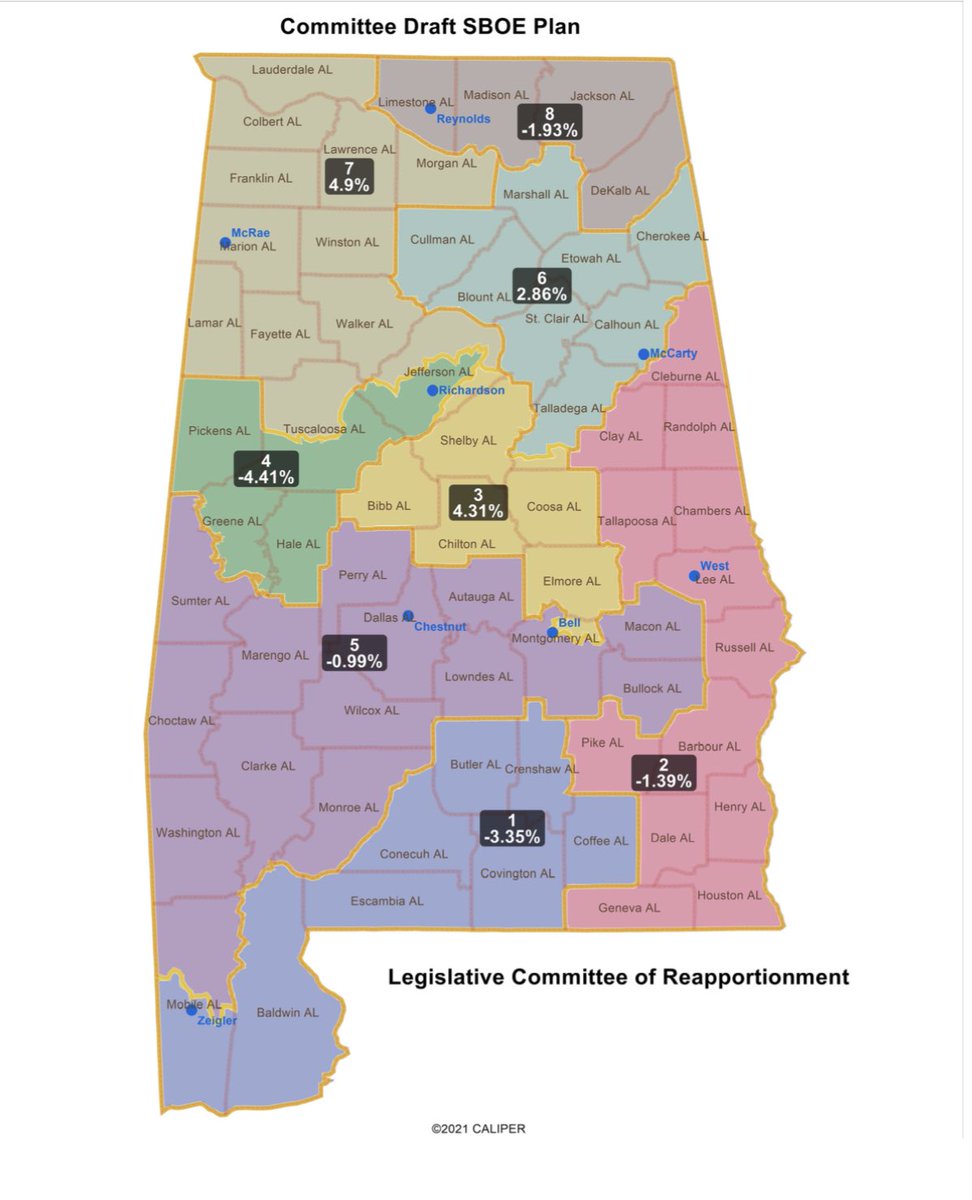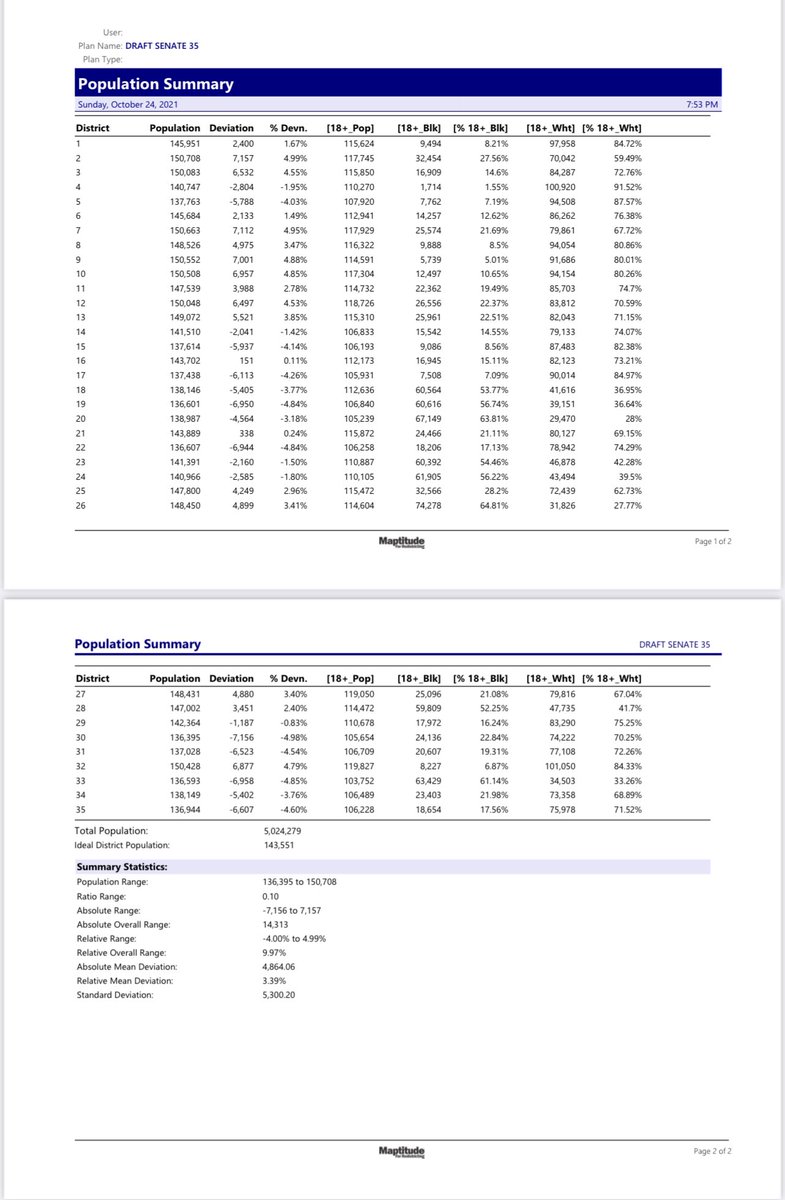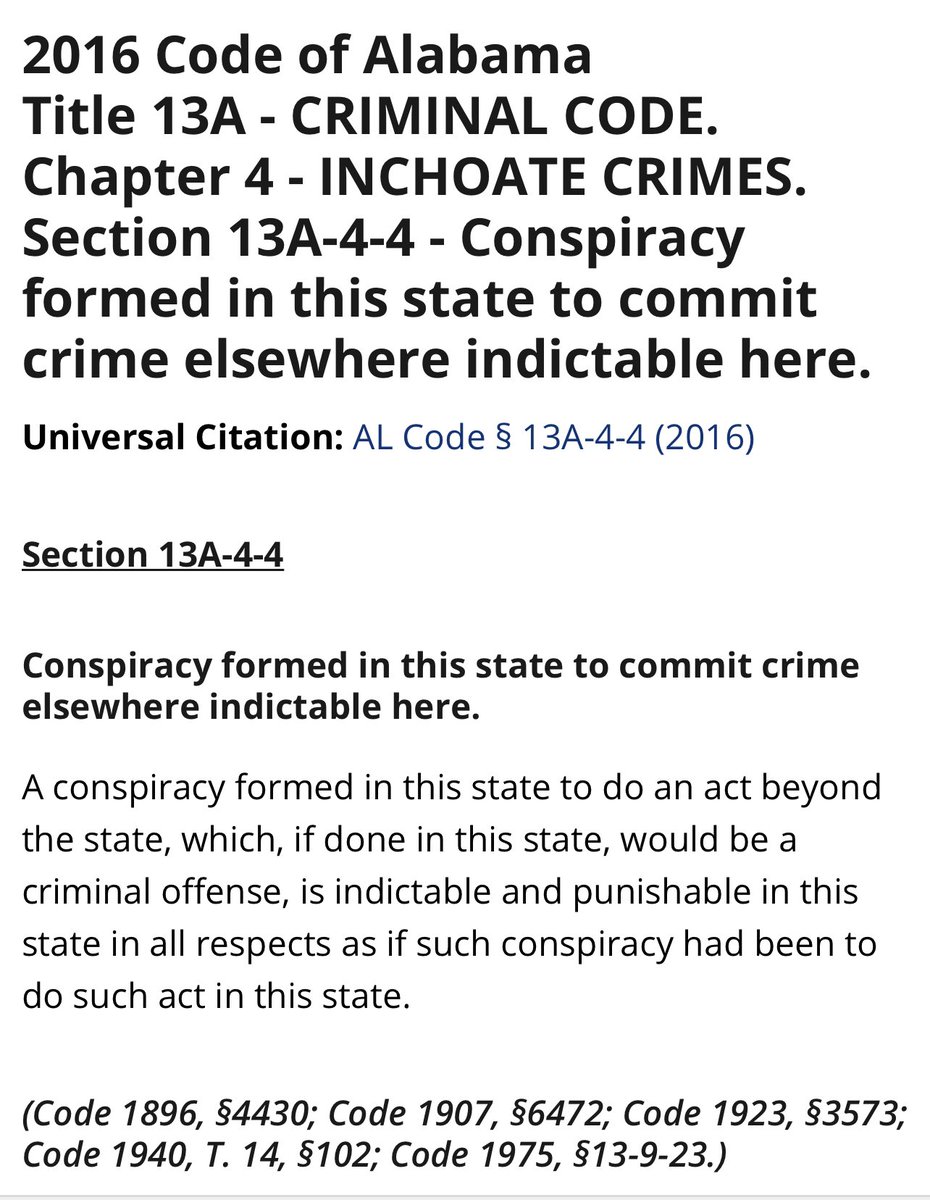The Committee on Reapportionment will be meeting on Tuesday, October 26 at 1 PM in Rm.317 at the Statehouse. Here are the proposed Congressional, State School Board, and the Alabama House and Senate district maps along with accompanying underlying demographic data. #redistricting 

Proposed Congressional district map with underlying population demographic information. #alpolitics #Alabama #redistricting #SpecialSession2021 #reapportionment 





Proposed State School Board map with underlying population demographic information. #alpolitics #Alabama #redistricting #SpecialSession2021 #reapportionment 





Proposed Alabama Senate District map with underlying population demographic information. #alpolitics #Alabama #redistricting #SpecialSession2021 #reapportionment 





Proposed Alabama House district map with underlying population demographic information. #alpolitics #Alabama #redistricting #SpecialSession2021 #reapportionment 







Alabama House District map underlying population demographic information continued. #alpolitics #Alabama #redistricting #SpecialSession2021 #reapportionment 

You now have everything that I have. This is what the committee will consider tomorrow at 1. If I get anything else, perhaps something more detailed and easier to read, I will share it with you. #alpolitics #Alabama #redistricting #SpecialSession2021 #reapportionment
• • •
Missing some Tweet in this thread? You can try to
force a refresh










